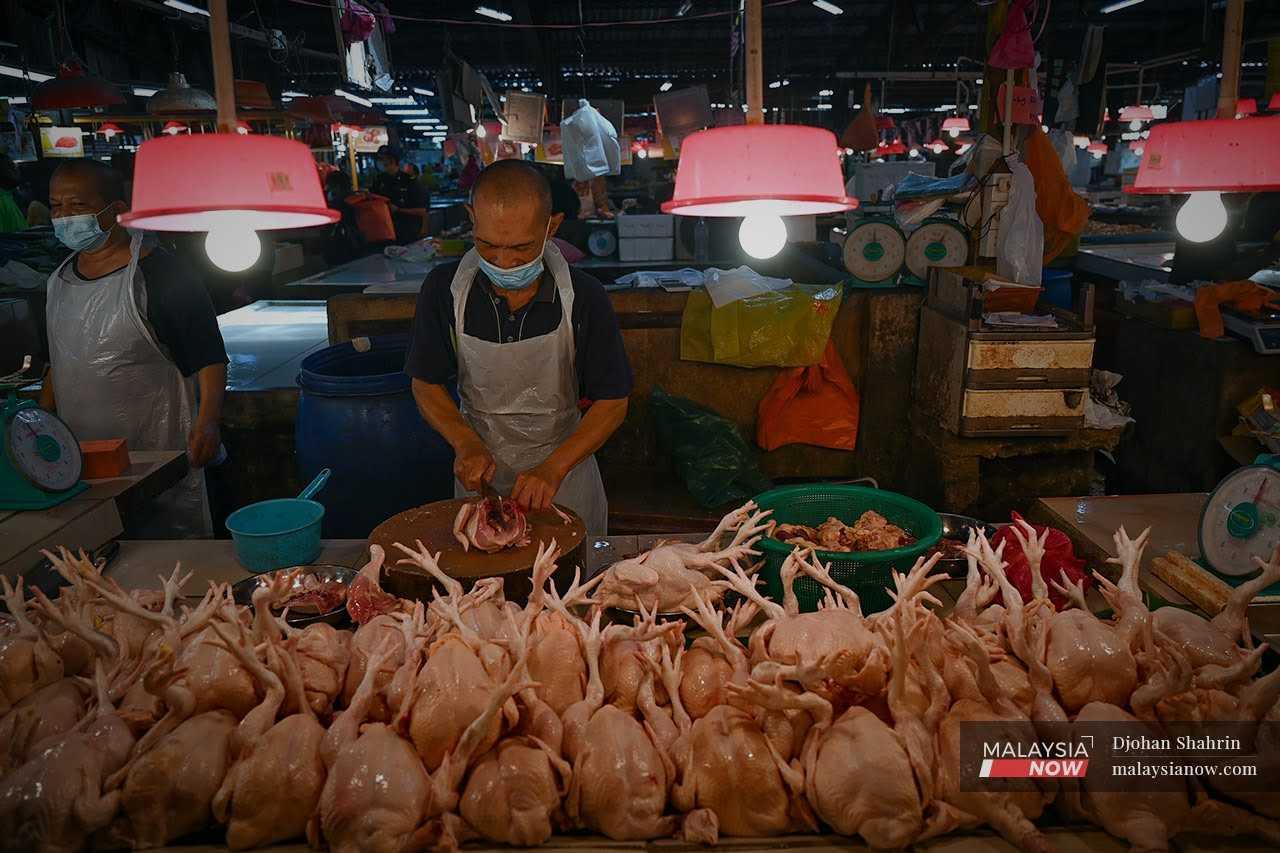Ban on chicken exports only a temporary measure, agriculture minister says
Ronald Kiandee says just over 8,900 subsidy applications by broiler chicken and egg-laying chicken breeders had been approved as of end-July, amounting to RM748 million.
Just In
The ban on the export of commercial broilers which is still in effect is temporary, that is, until the price and production of chicken fully stabilises, Agriculture and Food Industries Minister Ronald Kiandee says.
He said the government was also aware of the increase in the cost of chicken production following the rise in cost of animal feed and the cessation of exports affecting the returns of breeders.
"In this regard, for the first time, the government agreed to give subsidies to broiler chicken and egg-laying chicken breeders amounting to RM1.1 billion in total, to ease their burden. This subsidy started on Feb 5, 2022 and will end on Aug 31, 2022.
"As of July 29, 2022, a total of 8,907 subsidy applications have been approved amounting to RM748 million," he said during the question-and-answer session at the Dewan Rakyat today.
He said his ministry through the Department of Veterinary Services constantly monitors and holds engagement sessions with stakeholders in the chicken supply chain, including at the farm level, to ensure that the supply and continuity of the country's chicken production is at an optimal and stable level.
Ronald said this in response to Wong Shu Qi (PH-Kluang) who asked about the losses experienced by the chicken farming sector throughout Malaysia since the chicken export ban came into force on June 1, 2022.
Meanwhile, to a question from Azman Ismail (PH-Kuala Kedah) regarding the national buffer stock for rice, Ronald said its current position is at the level of 221,313 tonnes, that is 88.5% of the 250,000 tonnes target set by the government for the end of 2022.
He said the government was doubling the rice buffer stock in stages from 150,000 tonnes to 290,000 tonnes by 2023 to ensure the country's food supply and to address any contingencies.
"In order to meet the country's rice needs, the ministry always ensures that the rice stock position is above the average level of needs, which is 200,000 tonnes per month.
"The rice stock position in the country at the factory, wholesale and retail levels is always at a consistent rate, which is an average of 400,000 to 500,000 tonnes," he said.
Subscribe to our newsletter
To be updated with all the latest news and analyses daily.
